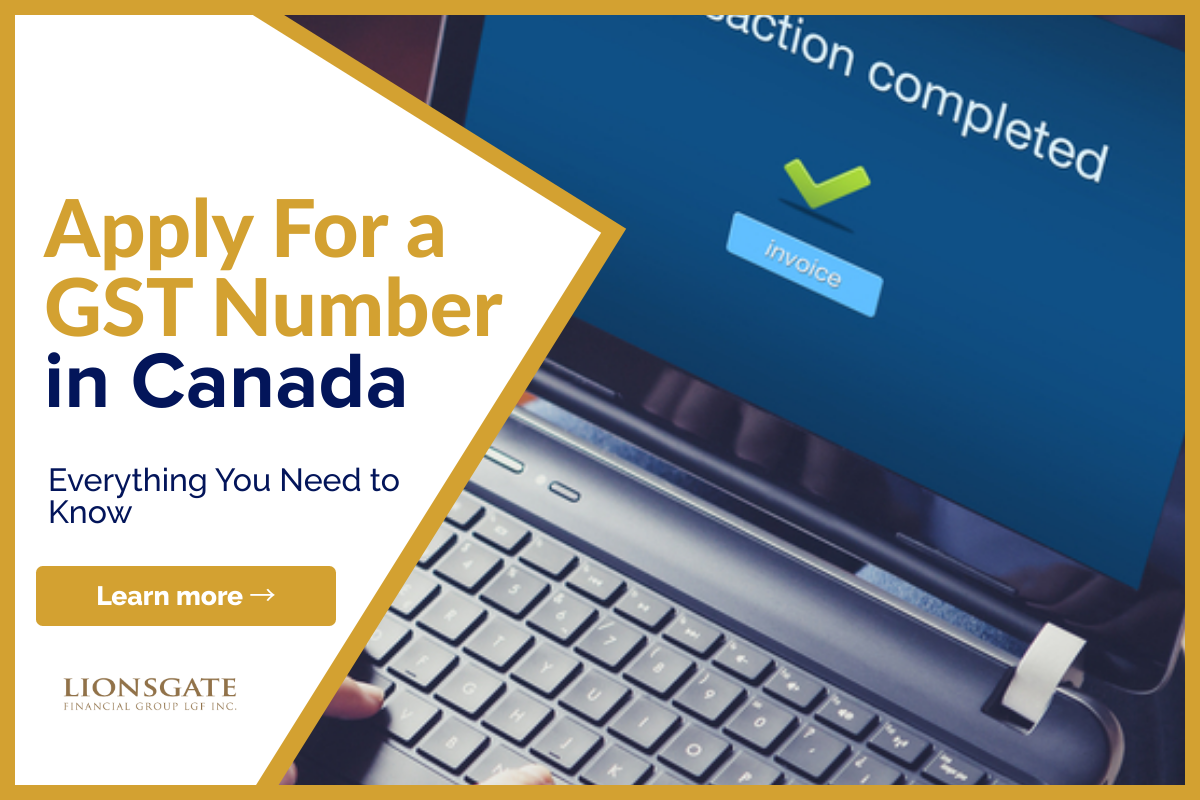During the early days of the mortgage business, brokers would require a lot of paperwork…

Apply For a GST Number in Canada
Now you can listen to our blog post, “apply For a GST Number in Canada” while on the go.
When you start a new business in any country, you have to take care of legalities as well. Like any other country, Canada has its own administrative tasks as well that need to be taken care of when you start a business. Depending on the type of your business, you will need a license, permits, financing, a business bank account and a place for your business.
Once your business starts to grow, you will register a GST/HST number. This is part of your business number and to give your business identity. The GST is paid on products like property, cars, taxis, legal and accounting services, hotel accommodations and more. Before moving to how you can get a GST number in Canada, let’s find out what exactly it is.
What is a GST Number?
A GST tax number is a goods and services tax number that is used for the identification of your business by the Canada Revenue Agency. When you get your business registered for a GST number, you are automatically registered for Harmonized Sales Tax (HST) as well. Your GST number serves as a record of your GST and HST issuance. Your HST number, which is part of your company number (BN), also identifies your CRA business dealings.
Is it necessary to obtain a GST number?
Not all businesses are required to obtain a GST number. For example, if you operate a tiny dog walking side business and earn $50 per week walking your neighbours’ dogs, you aren’t required to collect GST or HST. As a result, there is no need to register.
If your company does any of the following, you must register for a GST/HST number.
- Isn’t a small supplier and makes taxable supplies in Canada while conducting business?
- Admissions to amusement parks or activities held in Canada are taxable supplies (small supplier or not),
- Hosts a convention in Canada, with 25% of the participants being from the country.
- Employees, agents, and advertising are used to promote the book and other publication sales in Canada.
A small supplier who earns less than $30,000 per year typically does not need to register for a business number. However, because they fulfil the events criteria for registration, some small suppliers, such as taxis and limousine firms, must register for GST/HST. Small suppliers must, in general, be:
- Sole entrepreneurs with an annual income of $30,000 or less before taxes and deductions
- Partnerships or corporations with annual revenue of $30,000 or less before taxes and deductions
- Public service organisations with annual revenues of $50,000 or less before taxes and deductions
A GST number can be obtained in one of two ways:
Voluntary Registration: Some firms, whether they are small suppliers or do not operate in Canada, may choose to apply for a GST number here. Businesses engaged in commercial activity, non-residents outside of Canada exporting commodities or intellectual property, or non-residents outside of Canada providing services to Canada, according to the CRA.
Mandatory Registration: The date on which your firm must register for a GST number is automatically the date on which it earns more than $30,000 per year.
It’s critical that you contact the CRA and register for a GST number as soon as possible if you’ve already started charging sales tax.
What is the procedure for obtaining a GST number?
A GST number can be applied online, by mail, or over the phone. Make sure you have the following information before registering:
- SIN, complete name, date of birth, and postal code are examples of personal information.
- Name, address, and description of the company
- Addresses (personal and mailing)
- Taxable supply quantities under GST
- The end of the fiscal year
- Period of reporting
- Income
However, if you run a business in Quebec, you’ll need to file your returns with Revenu Quebec. Visit Revenu Quebec’s website for further information on how to do so.
Visit the CRA’s website for further information on registering.
GST/HST Collection
The amount of GST/HST you charge on your goods or services is determined by the province or territory in which you operate. The provinces of British Columbia, Manitoba, the Northwest Territories, Quebec, Saskatchewan, and Yukon all levy a 5% tax. The provinces of New Brunswick, Newfoundland and Labrador, Nova Scotia, and Prince Edward Island all tax 15%, while Ontario charges 13%.
Fill out a GST/HST return each tax season, noting your GST number, or business number, as provided on the CRA form, and pay your collected taxes to the CRA. This form can also be submitted on a quarterly basis. Then, using your purchases and expenses as input tax credits, you can reclaim some of the GST you paid to the CRA.
The Bottom Line
At Lionsgate, we specialize in helping people get the extra cash they need, obtain funding for private mortgages, as well as for other real estate transactions. If you are looking to buy land in Canada, get a mortgage or apply for a loan, fill out the form below. Or, You can leave us a message and we will try to connect you with local lenders and sources that best meet your needs.
If you found this article helpful, please share it on your timeline and with someone you care about. Also, visit our blog to read similar helpful articles on finance, real estate, and getting mortgages.




